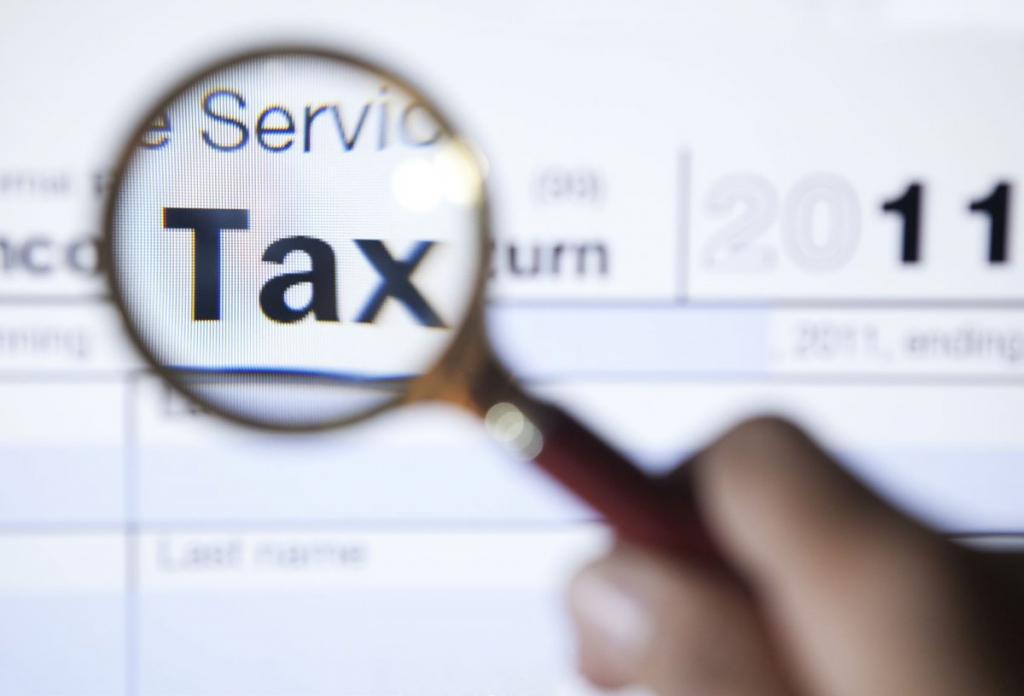Preferential taxation according to OKVED (All-Russian Classifier of Types of Economic Activities) is a topic that interests a large number of taxpayers. In this article, we will analyze this topic by answering questions about what it is, as well as who and how can get it.
Law
The law that governs the process that we are considering in this article is the Moscow Region Law on preferential taxation. The regional law under number 151, adopted and entered into force on November 24, 2004.
Whether certain benefits will be granted to any individual or legal entity is decided directly by the state and its authorities. In the event that a decision is to be made at the local government level, a resolution of the local authorities is carried out.
Also, in addition to the law of the Moscow Region on preferential taxation, all information about them, of course, is provided by the Tax Code of the Russian Federation.
Definition

Preferential taxation is such a collection of taxes on income of different categories of citizens, which, in accordance with the specifics of these categories, can be reduced or removed altogether. The legislation of the Russian Federation spells out all these points in detail, determining who has the right to pay taxes in a reduced amount, and who is completely exempted from this obligation. Let us consider in more detail the types of preferential taxation.
Benefit System
In the Tax Code of the Russian Federation there is no system of granting benefits clearly defined by certain canons. However, in everyday life this term is considered as a list of special tax regimes in which the taxpayer loses the obligation to pay certain types of taxes. These modes include the following:
- STS - a simplified tax system. It is usually provided for owners of small or medium-sized businesses.
- UTII - a single tax on imputed income. It is also used for certain categories of entrepreneurship:
- retail trade;
- public catering;
- domestic services;
- veterinary services;
- repair or technical support of automobile and motorcycle vehicles;
- distribution of commercial advertising products;
- the provision of land for trade or other purposes on a temporary basis;
- carriage by road;
- Private parking or parking services.
3. Unified agricultural tax - a single agricultural tax. It is used for persons engaged in the production and distribution of products of the agricultural consumption market.
4. PSN - the patent system of taxation, which is a form of preferential taxation for individual entrepreneurs (individual entrepreneurs). Under this system, tax is paid in a simplified form and is paid in advance.
Forms of this taxation
Like any other economic process regulated at the state level, the provision of tax benefits also takes several forms. Namely:
- Withdrawal. The benefits provided under the auspices of this form imply the elimination of the obligation to pay taxes on a number of certain property objects that, without benefits, like the rest, are subject to full taxation.
- Discounts.This form of taxation of income is associated with a direct reduction in the size of the taxpayer’s tax base (that is, of a special size, which is multiplied by a specific tax rate and the amount necessary to pay the state is calculated). They can be limited (that is, limited in size) or unlimited (if the tax base goes through a reduction process in accordance with the entire amount of available expenses).
- Tax exemption. Such a benefit is, as you might guess, a complete deprivation of the paying entity of the obligation to pay taxes. This right is granted to individuals and certain certain categories of citizens.
There is also another form of preferential taxation, which is a tax credit. However, the obligations undertaken by a taxpayer who, in case of emergency, takes a deferral of tax payment or installment payment, are not reduced at all, therefore this form does not fully comply with the term “concession” itself, which is prescribed in the Tax Code of the Russian Federation.

Among other things, three types of benefits should be noted in terms of their impact. Namely:
- Concessions on federal taxes prescribed in the Tax Code of the Russian Federation.
- Benefits for regional taxes prescribed in the Tax Code of the Russian Federation and in regional legislation.
- Benefits for local taxes prescribed in the Tax Code of the Russian Federation and in regulatory legal acts of municipal authorities.
Of course, all these benefits in one way or another differ from each other in a number of specific criteria, which should also be prescribed by law. An understanding of these nuances and subtleties is necessary for comprehensive coverage of the topics discussed in this article and understanding of the processes that need to be carried out to achieve any result with regard to the reduction of tax costs if there are all the necessary reasons for this.
Benefits for individuals
Now we turn directly to the list of persons and organizations entitled to receive preferential taxation of profits, as well as specific types of this process. Let's start with individuals.
Tax benefits for them include:
- Full exemption from any taxes.
- Partial exemption from payment through tax evasion (no transfer to the state budget.)
Let us consider in more detail these two types of liberation.
Full tax exemption
A complete exemption from the obligation to pay taxes is vested in certain certain types of income, the list of which is as follows:
- Various government benefits (e.g. unemployment or maternity leave). However, there are some exceptions to this paragraph. The number of tax-free benefits from the state does not include: financial assistance in caring for a child, compensation for disability on a temporary basis in connection with respectful circumstances, and other compensations that are taken into account by the legislation of the Russian Federation.
- Pension payments and any accumulation of pension funds are also not subject to tax.

- Funds from certain payments or government subsidies that go to pay for the housing in which the citizen lives, as well as utilities in this housing.
- Compensation for a variety of financial costs that were received by an employee of an organization during the performance of his duties with the help of personal property in consultation with his employer. For example, the tax does not need to be paid out of the funds that are paid to the employee by the employer for the use of a personal car for official purposes.
- Cash rewards for providing any kind of official paid assistance (blood donation is an example).
- Alimony paid by an abandoned family by a man.
- The benefit, the payment of which is made no more than one year and amounts to 50 thousand rubles, paid by any organization to its employee for the birth or adoption of a child by him.
- Net profit based on the sale of real estate owned by a selling citizen for three or more years.
- Capitals supporting large families, whether maternal or regional. Here, however, there is an exception: any other capital that has an appointment in accordance with a specific purpose is subject to a full tax.
- Budget payments provided by the state for the purchase or construction of housing.
Partial tax exemption
The Law on preferential taxation (in the Moscow region and not only) indicates that the income of citizens of the Russian Federation is taxed at a rate of 13%. Any claiming citizen with such a rate can reduce it, using the help of tax deductions (amounts that reduce the tax base, from which tax money is accrued to the state treasury).
In Russia, as a country with preferential taxation, three types of deductions from the taxes we are considering are prescribed at the legislative level:
- Ordinary tax deductions that comply with the standard.
- Social retention.
- Deductions from taxes on property.
Standard deductions

In the grace period of taxation, some citizens and children under 14 years of age (minor children) can count on these benefits. Individuals pay less due to such tax deductions, but they only act if these persons are participants in certain military operations on the part of the Russian Federation, invalids and veterans of the Great Patriotic War, Heroes of the Russian Federation or injured as a result of such major accidents as an explosion in the fourth Chernobyl nuclear power unit, which led the entire surrounding area to serious and significant radioactive contamination. The amount of this deduction is 3 thousand rubles per month. If an individual has the right to apply at the same time several different benefits differing from each other, then the amount of the total tax deduction must correspond to the maximum amount accepted, while the two types of tax withholding are not subject to the summation process.
The same maximum amount of deduction per month, amounting to 3 thousand rubles, corresponds to deductions for children (they are provided to those parents who independently provide for children who have not reached the age of eighteen). Moreover, the law on preferential taxation notes that the tax benefit is legally subject to use only until the moment when the amount of income of the citizen who is granted the benefit does not cross the threshold of 280 thousand rubles. They begin to count this profit from the official beginning of the calendar year, that is, from the first of January. Accordingly, if during this year the taxpayer’s income increases and an excess of the above amount of 280 thousand rubles occurs, a tax deduction will no longer be provided to him.
Moreover, it is very important to take into account that the law on preferential taxation in Moscow or other areas provides a tax advantage (a more formal term - preference) in relation to children to only one of his parents or legal representatives (adoptive parents, guardians, etc.).
Social Retention
Those taxpayers who have items of expenses for costs that are significant for society can count on these benefits. These actions include:
- Charitable donations (in this case, the tax deduction increases up to 25% of all profits payable tax and received within one year).
- Costs, which are cash expenses for training and education.
- Costs spent on the treatment of any disease.
- Pension payments, the type of which does not apply to the state, as well as pension insurance, which were issued at the voluntary request of the insured.
- Additional contributions provided by insurance legal documents, the purpose of which is to accumulate funds that are actually a retirement pension.

The amount of social deductions is equivalent to the amount of expenses incurred by a citizen paying taxes, but they cannot exceed the amount of 120 thousand rubles per year. The formal statutory exceptions in this case represent the costs that were expended on any donations or treatment worth a lot of money.
The maximum amount of deduction, which is provided for training in the zone of preferential taxation of one student, is 50 thousand rubles per year.
Property Deductions
The preferential tax system provides that official property deductions are possible in the following cases:
- Sale of real estate: land, residential buildings and apartments, etc. At the same time, the taxpayer must have possessed this housing for at least three years, and the maximum allowable deduction cannot exceed one million rubles per year.
- The sale (that is, the procedure that applies, as a rule, to persons who are bankrupt in order to recover their property in an amount that will satisfy the needs of creditors not closed by this citizen) of other property that the owner has had for less than three years. Here, the deduction ceiling is 250 thousand rubles per year.
- The sale of a certain share or part to be recovered from the fixed capital of an organization that complies with the charter, which also implies that the seller must cede the rights prescribed in the contract regarding participation in the development or shared construction process. Withholding tax corresponds to the amount of costs that was certified by official legal documents.
- Withdrawal for state or municipal use from a taxpayer of a plot of land or any objects located in this territory. In this case, the amount of tax deduction corresponds to the price that was declared during the repurchase process.
- The acquisition of the entire dwelling or a share of it, as well as the land area for building it with housing or a plot on which there are already similar houses or their share. It is important to consider that more than two million rubles in this case cannot be withheld.
- Payment of money from interest that was provided for by a loan for the purchase or construction of real estate, or refinancing (repayment of existing microloans and subsequent issuance of new ones for the same amount, but with more favorable conditions at interest rates). Withholding tax in this situation is equal to the amount of interest that has already been paid, however, this amount cannot exceed a certain threshold, which is 3 million rubles. It is also important to consider that this privilege can be obtained only for one immovable object.

Real estate or transport, which is necessary for any enterprise to carry out its commercial work, is not subject to preferential taxation. The same rule can be applied to sales of previously acquired securities.
Also, tax deductions include professional tax deductions that can be granted not to individuals, but to legal entities.
Objects subject to benefits in production
If we are talking about any organization in the zone of preferential taxation, then those citizens whose activities are of undeniable public importance can receive a tax exemption. Most often, extremely serious requirements are put forward for such enterprises in one way or another, the fulfillment of which may lead to them receiving benefits on payments. An example of such a requirement is the use of funds for certain purposes.
Thus, a preferential object of taxation is an object that has significant social utility.
Preferences for legal entities
An organization can expect to receive a certain tax benefit in cases where it is paid:
- The tax on received during the implementation of this organization's direct work activities.
- The tax on property disposed to her.
- VAT (value added tax).
Income tax exemption
An organization loses its obligation to pay income tax in two cases:
- The staff of this company is more than half (that is, no less than 51%) of disabled people who carry out work activities.
- This legal entity was formed on investments made by certain companies (for each state with preferential taxation they present their specific examples), and is also listed as their official real estate.
Property tax
Certain categories of legal entities are also exempt from property tax. These include legal entities such as:
- Budgetary institutions, official bodies, the Pension Fund of the Russian Federation, the Social Insurance Fund and the Federal Compulsory Medical Insurance Fund.
- Those organizations whose actual activity is the storage, as well as the processing of marine products or agricultural products.
- Establishments dealing with orthopedics and related things, such as prostheses.
- Cultural, educational or religious enterprises and voluntary civic associations.
- Enterprises with a profile in the field of housing.
- Various centers in which scientific research takes place.
If you wish, you can fill up this list with other types of legal entities that have their own specific preferential tax rate.
VAT

Those people who pay the value added tax of some goods are officially deprived of some specific obligations for paying taxes in those cases when they import one or another imported product into the territory of the Russian Federation. Exported products that were produced on the territory of the Russian Federation are also not subject to taxation (which was done in order to add another incentive to domestic material producers).
Total
Every citizen who pays taxes on official income should know about preferential taxation in the Moscow region and other places in our country. We hope that this article helped you to understand this topic and answer all your questions so that you can easily determine whether you can count on a particular form or type of tax benefit, or whether you should reevaluate your activities and reform it in accordance with all the necessary criteria, which, if they are met, can guarantee you a solid monetary increase (or, more precisely, a reduction in expense).









